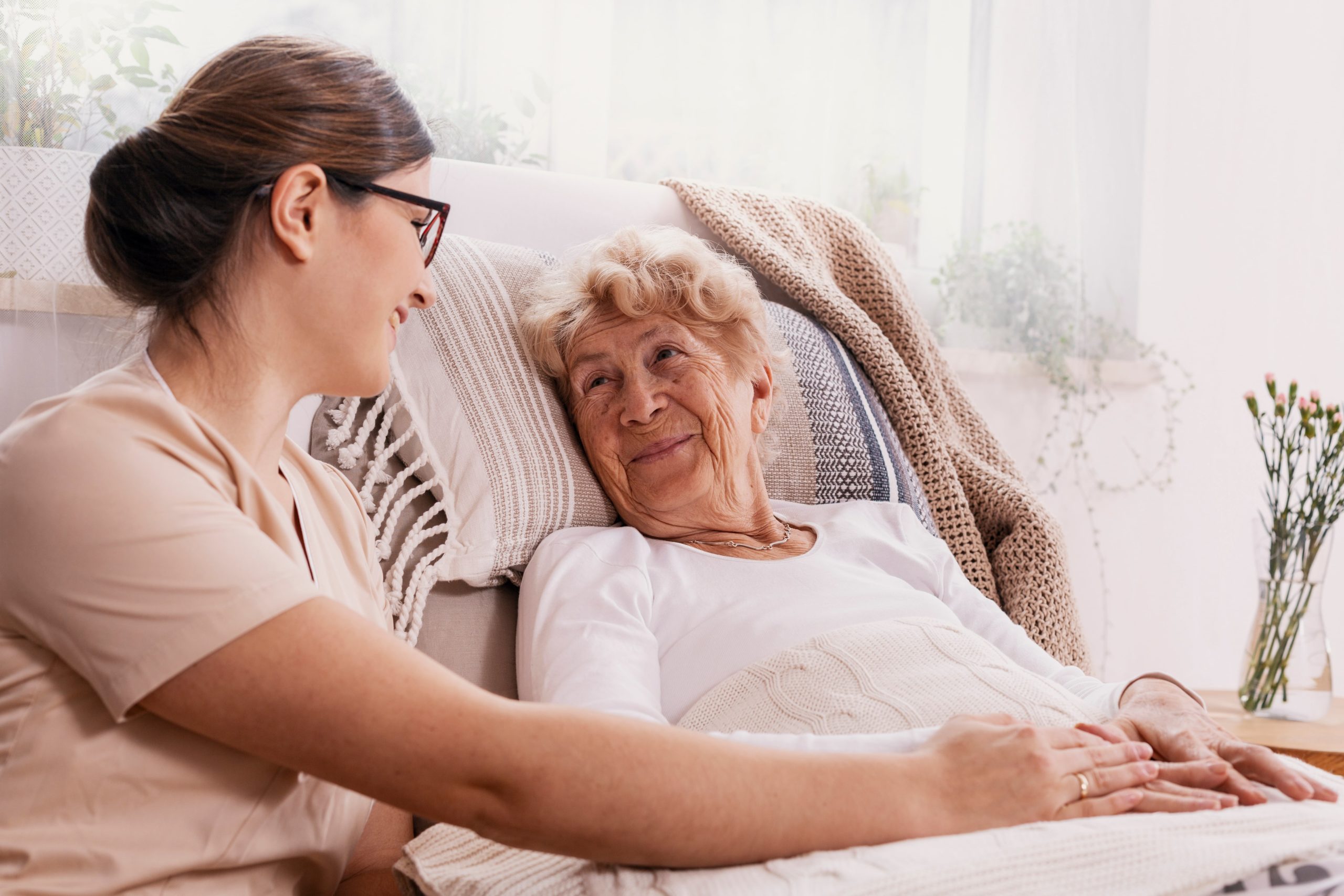About 17 million adults in the United States are living with cancer right now. For each person with cancer, a caregiver is there to help.
Caring for cancer patients at home is an important job that has a big impact on how well that person gets better. Some challenges come with being a caregiver. Most people don’t feel ready for this role. It takes time and understanding to adjust to changes.
Caregivers probably worry about the health of the person they are taking care of and try to balance their new responsibilities with other things, like family and work. A caregiver often has to do many things, such as:
- Medical advocate who helps people find their way through the medical system, goes to appointments, and keeps an eye on the paperwork
- Nurses caring for cancer patients
- Counselor, who helps people feel better
- Manager of the house, in charge of making meals, doing laundry, paying bills, and taking care of children.
- Worker, trying to make a living and keep health insurance
When you start taking care of someone, your role changes. You may have gone from being a partner to a caretaker or from being an adult child to a caretaker. Now, on top of being a wife, husband, daughter, or son, you are also a nurse, a counselor, and a medical advocate.
This change in roles could make it hard for you and your loved one to get along. Both of you may need time and understanding to get used to this change and the new expectations that come with it.
Caring for cancer patients at home You can feel
It can be physically and emotionally draining to take care of someone who has cancer. Physically, you may feel tired, lose your appetite, or have trouble sleeping. You may feel sad, worried, guilty, angry, frustrated, or like you can’t do anything.
Too often, caregivers put aside their own needs to focus on the needs of the person they are taking care of. This could cause caregiver burnout, which can look like this:
- Illness
- Increased anxiety
- Depression
- Irritability
- Social withdrawal
- Resentment
Nurses caring for cancer patients
Cancer Support Nurses are Registered Nurses with a lot of experience and knowledge in the field of oncology.
Cancer Support Nurses may also be called Cancer Nurse Specialists, Cancer Nurse Care Coordinators, or just Cancer Care Coordinators.
Who can have a Cancer Support Nurse help them?
Anyone who has been told they have cancer, as well as their caregivers and family members who need information and help.
Access to information after being told you have cancer.
Since there are many different kinds of cancer, there are also many different ways to treat them. After getting a cancer diagnosis, it can be hard and confusing to find accurate information. Getting ready for and going through treatment can be difficult. Cancer Support Nurses can help you before, during, and after your treatment by giving you information and practical tips.
Nurses caring for cancer patients can help
- Give people information and resources about cancer and the different ways to treat it.
- Give emotional support and talk about ways to take care of oneself.
- Provide practical support.
- Provide continuity of care.
- Communicate with the other people on the healthcare team.
- Come with you to the doctor’s office.
- Give information about meetings of cancer support groups.
- Look Good Feel Better workshop referrals.
- Wigs, turbans, and tips on how to deal with hair loss.
- Advocacy.
- Getting help from other services.
5 Ways To Care For Someone With Cancer
Make the room cozy and full of life.
Because hospital rooms are dull and lack color, they can be very dull. But cancer patients should be able to enjoy some color when they are at home. To cheer up the patient, the room can be made to look more lively. Colorful curtains, bedsheets, and pillows can make a room look better. You can also make the room look more inviting by putting up your favorite paintings and display pieces. The patient needs a lot of rest and will be spending a lot of time in that room, so get them books, a TV, or anything else they might like to keep them busy and entertained. This will help the person feel better while they are getting better. Most common types of cancer can be cured if caught early, so try not to worry too much about it.
Make an appointment and treatment calendar.
Chemotherapy and radiation are two types of cancer treatments that have to be done on a set schedule. Make a calendar where you can write down all of your treatments, doctor’s appointments, and other important dates. This will take away the stress of having to keep everything in your head. A good calendar will also make sure that patients don’t miss their appointments and get the care they need at the right time.
Use a timetable to remember when to take your medicine.
In addition to a calendar for appointments, keep a schedule for when to take medications. All medicines must be taken at the right time and in the right amount. Use the doctor’s instructions to make a chart that shows when and how many tablets of each medicine need to be taken. It might help to make the tablets easier to find by giving them different colors on the chart.
Limit the number of people who come.
Patients with cancer have low immunity, so they need to be kept away from germs. In addition to keeping the home clean, it is important to keep track of who comes to visit the patient. Limit the number of visitors to one or two a day, and make sure they come when the patient is most comfortable. Most importantly, make sure none of your guests have any kind of illness. No one with a cough, cold, fever or any other illness should be allowed to get too close to the patient. This may seem harsh, but it’s the only way to protect your loved ones from future cancer problems.
Take Some Time Off
Caring for a person with cancer can be mentally and physically draining. Caregivers need to take care of their own health so they can give the right care to the patient. At least once a week, all caregivers should take a break to rest or go somewhere else. During that time, the patient can be cared for by a family member or close friend. If someone close to you can’t be there, you can hire a private nurse to come in for a few hours each week.
With these rules in place, people who take care of people with cancer will be better prepared for the road ahead. Visit our health and lifestyle blog to learn more about things like early cancer symptoms and facts about blood cancer.







